After having their original London travel plans scuppered by Covid back in 2020, last month we were finally able to welcome our New York friends (and regular companions on European jaunts) Mike and Melissa to the city. Melissa came armed with a list of food recommendations from a friend, and happily our inaugural pub dinner at The Mayflower was able to tick off both ‘fish and chips’ and ‘sticky toffee pudding’ in one outing. Later – partly because Mike got confused about the currency exchange situation and thought we were still in the Liz Truss era – we also enjoyed fancy dinners together at Rovi and Dishoom.
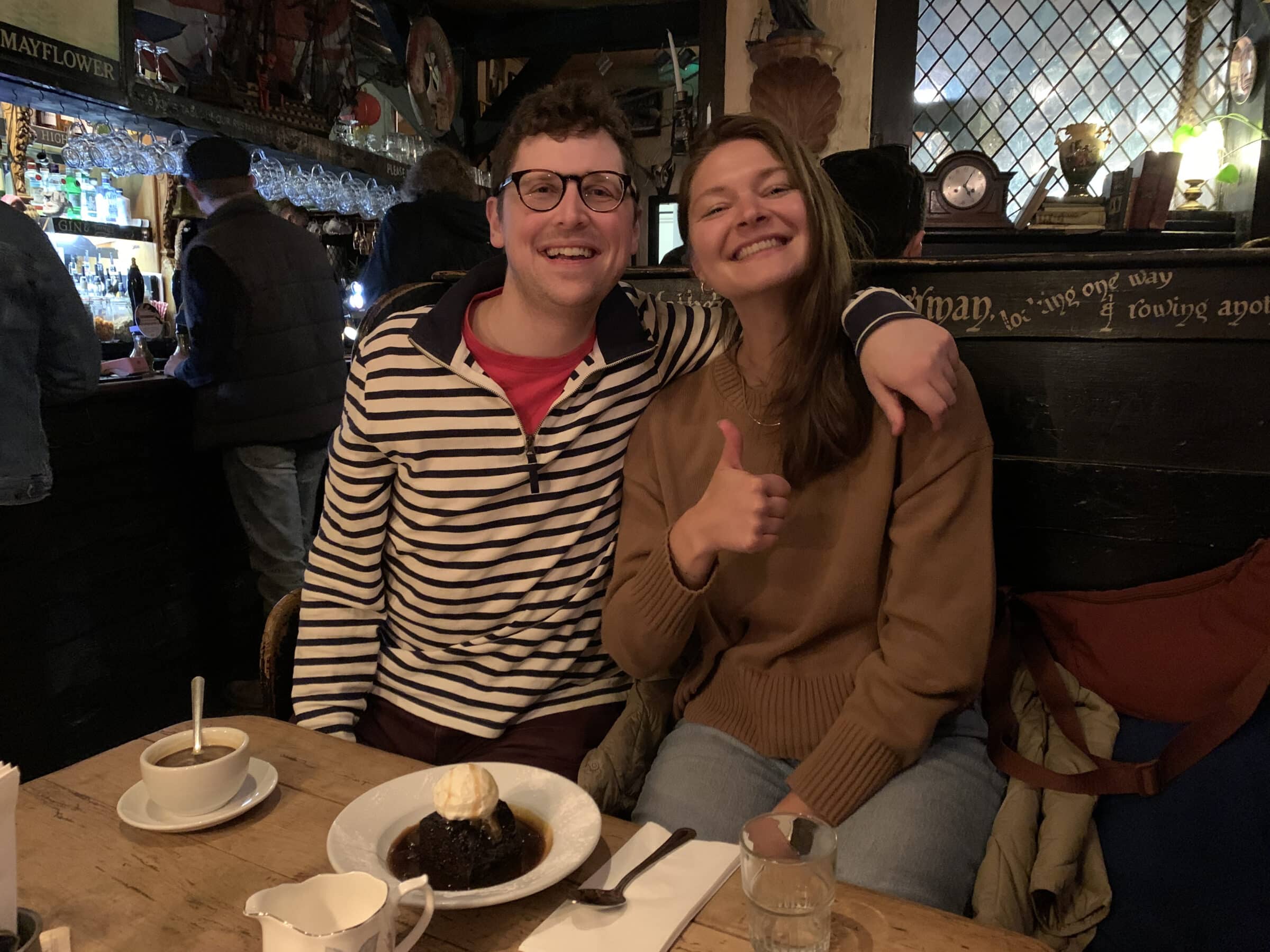
Our other big outing together (unless you’re counting the Bakerloo line) was to see Hadestown, a musical retelling of Orpheus and Eurydice which was recommended by my colleague Annie and has actually been floating around for many years without quite entering my consciousness. In case you’re unfamiliar with the Ancient Greek myth, Orpheus is a musician in Ancient Greek mythology who loses his wife, Eurydice, after she is bitten by a snake and dies. (Well, this is what I learnt in my children’s illustrated book of Greek myths as a child. In some tellings, Eurydice only steps on the snake because she’s fleeing from a satyr who is half-man, half-goat and fully obnoxious.)
In this musical the journey to the underworld is a little more interesting, as a desperate Eurydice bargains her life away to Hades while Orpheus is simply too distracted by his music to make enough money to survive. Either way, a grieving Orpheus uses the power of his music to travel to the underworld and persuades Hades and Persephone to let him take Eurydice back to the world of the living. The answer, surprisingly, is yes… as long as he doesn’t look back at Eurydice on his journey until he’s made it out of the underworld. Orpheus takes the deal and is almost back home when he faces a crisis of confidence and turns around to check that Hades hasn’t tricked him. Fleetingly, he sees Eurydice behind him for one last time before she is pulled back forever.
As you might imagine, both Randi and I find this moment incredibly frustrating and exchanged a mutual look of exasperation in the theatre when it happened. The game theory is not exactly complicated:
| Look back | Don’t look back | |
| Hades is honest | No Eurydice | Eurydice |
| Hades is lying | No Eurydice | No Eurydice |
But this irrationality is Orpheus’s fault, not that of the musical, which was lots of fun despite the inherently downbeat ending. For me, the central couple were a little outshone by the secondary characters such as Hades and Persephone, and my absolute favourite performance was the messenger god Hermes. This role was played in the West End by Melanie La Barrie, and it’s a little jarring on the Broadway album to hear it in a man’s voice.
Awkwardly, the show also includes a song from Hades entitled “Why We Build the Wall” which feels like a painfully unsubtle anti-Trump statement, even though the writer is at pains to point out that it was written back in 2006 and wasn’t intended as a reference to Trump at all. Still, Hades in this musical is a brutal industrialist – ransacking the natural resources of the planet and exploiting the labour of the masses – and in general it’s done well, even if sometimes it teeters on the brink of becoming a generalised anti-industrial critique. And I’m always suspicious of anti-industrial critiques becoming performed in expensive West End theatre shows.
Anyway – back in this industrialised land of the living – some of our other exciting London outings during this jam-packed weekend included a trip to the Crystal Palace dinosaurs and an impromptu stop at Gordon’s Wine Bar! Hopefully we will get a chance to see them in New York in the not-too-distant future, especially as I discovered that they now live near the New York Transit Museum…
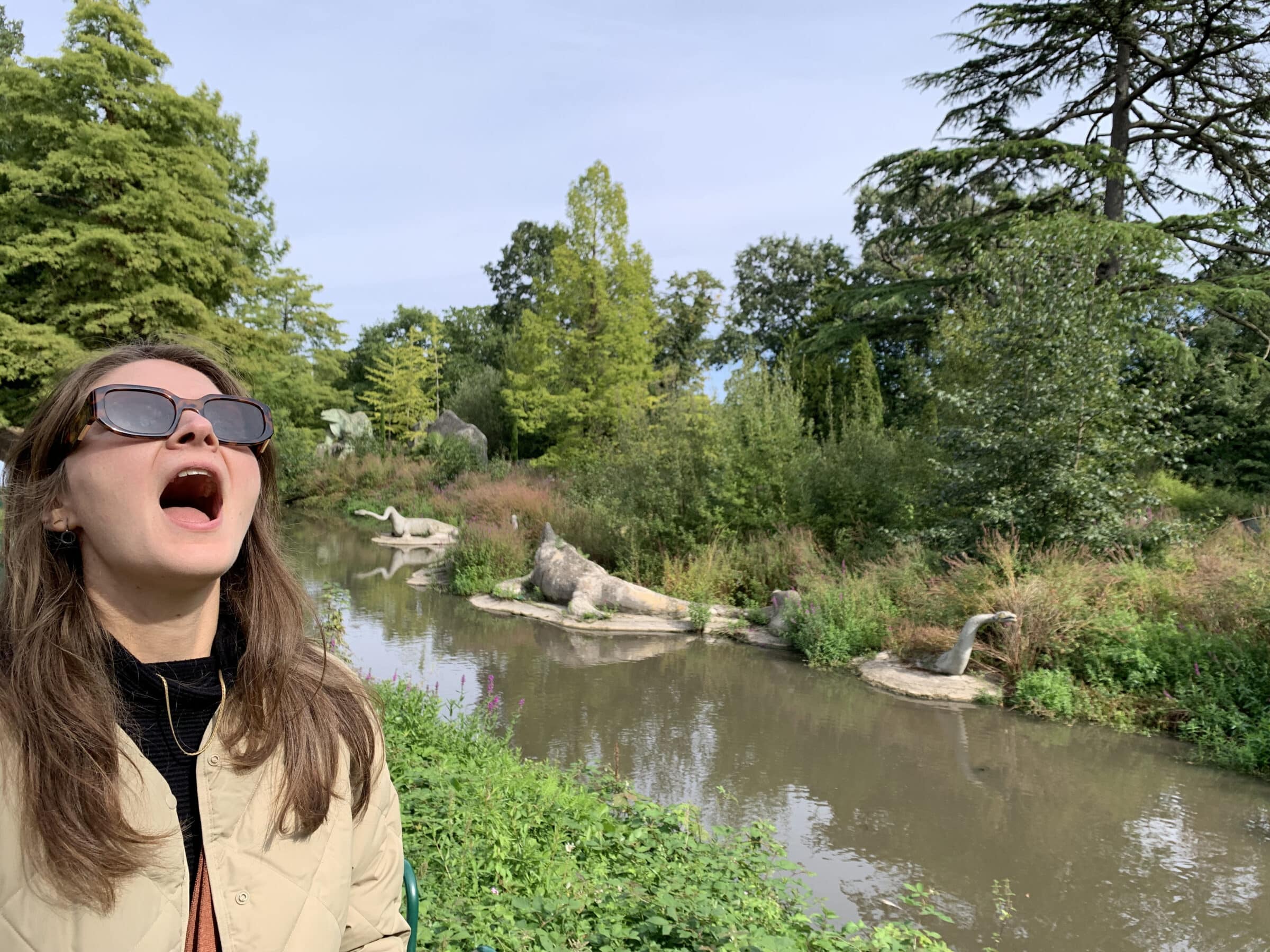
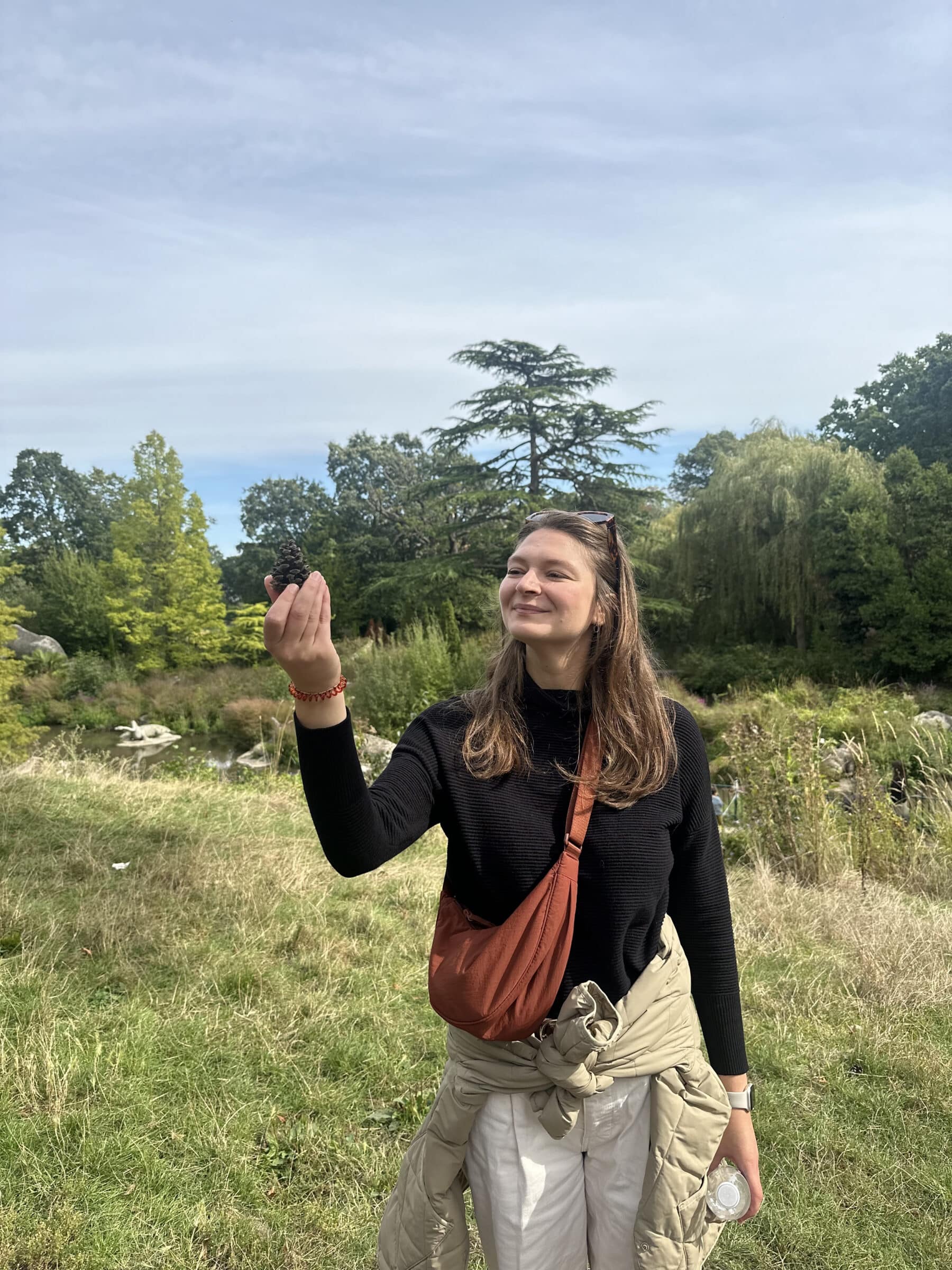
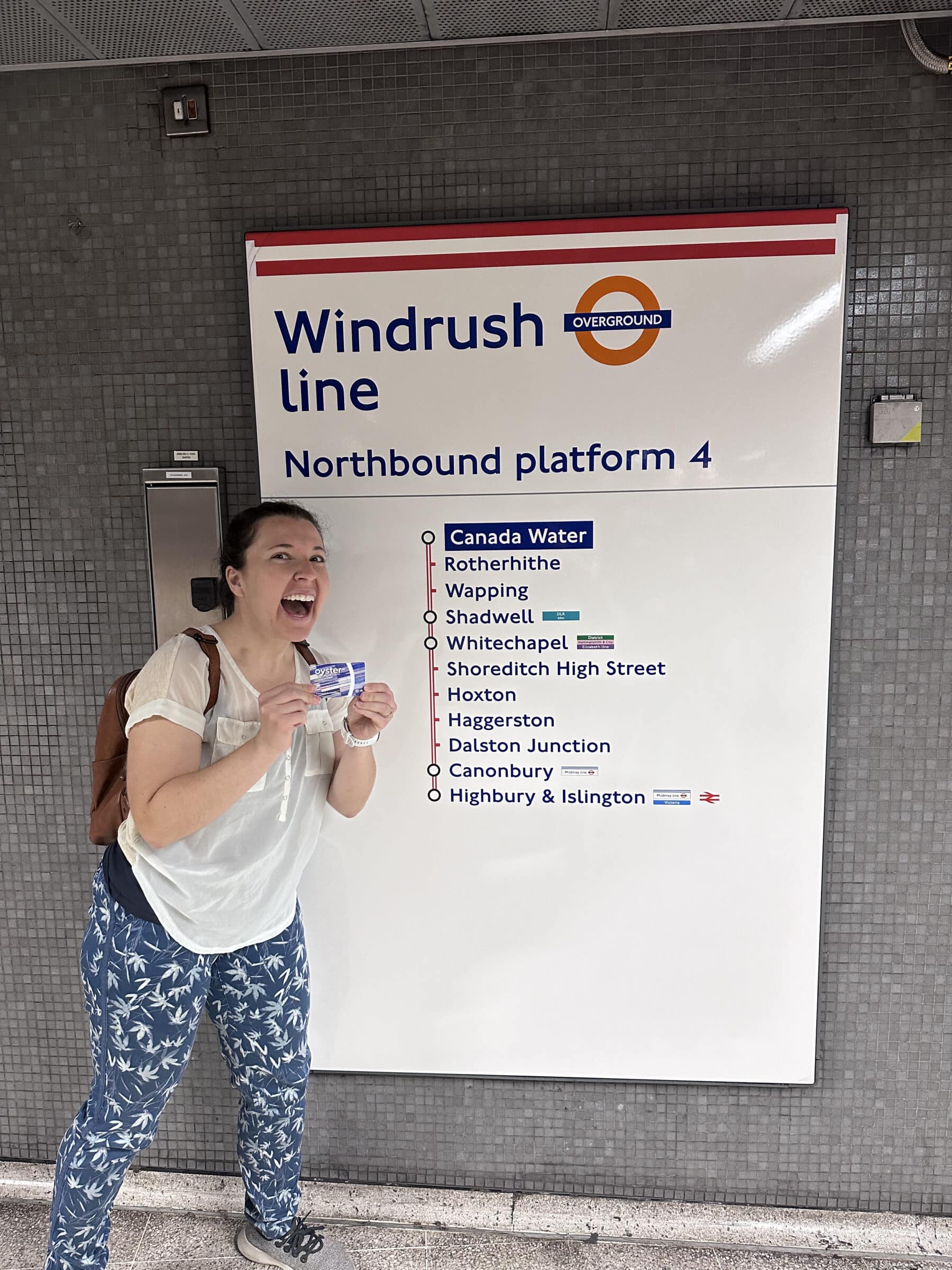
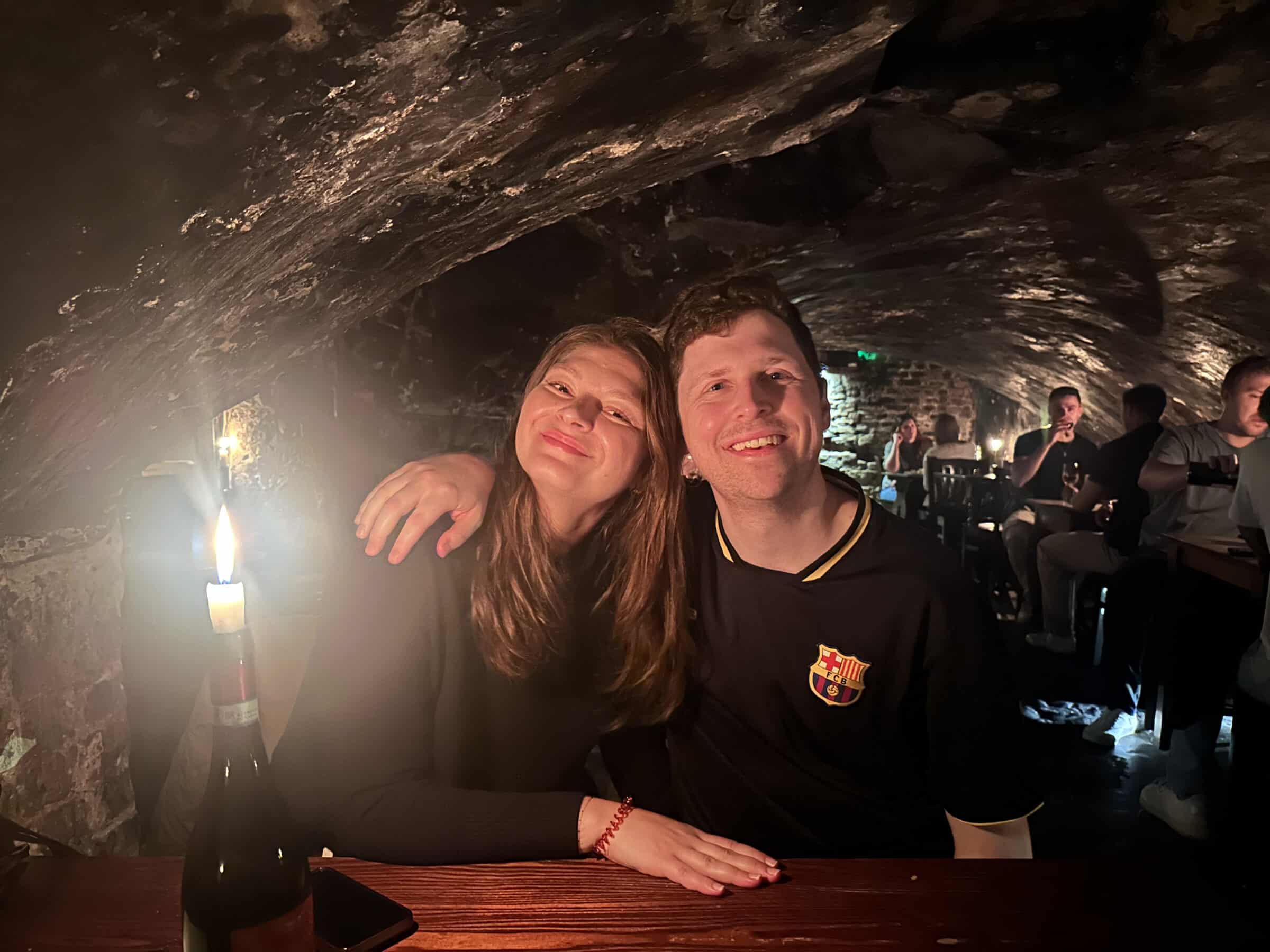
Talking of transport, the following weekend Randi and I were back in Crystal Palace for the open day of the restored Crystal Palace Subway. This was a beautiful Victorian walkway linking the old Crystal Palace High Level station (closed 1954) with the actual Crystal Palace itself (burnt down 1936) and it was very cool to see how much work has gone into the space. That evening, completing the theme, we headed off to the London Transport Museum to see The Truth About Harry Beck, a strange two-handed play about the inventor of the Tube map (sorry, diagram) and his wife Nora. It’s a bit of a sad story, with an obsessive Harry losing all credit for his design, which is also told brilliantly in Jay Foreman’s video. But there are also lighter moments of audience interaction, and the relationship between the pair is very sweet overall.
September also included Reema’s birthday tapas (including her super-cool mother and aunt) and a weekend away to stay with Randi’s friends Andrew and Mark, who live in a village about a 20 minute drive from Nuneaton. Their house, which is the kind of massive classically-inspired renovation project they feature on Grand Designs, is so incredibly tasteful and beautiful I felt obliged to change into a buttoned shirt when I arrived.
By a great coincidence, I happen to be reading The Odyssey at the moment, so having Andrew on hand as a fully-trained classicist to answer all of my stupid questions was incredibly helpful. We were also fed with Mark’s delicious homegrown vegetables fresh from their garden and taken on a tour of where the Battle of Bosworth Field took place. This is no more my area of history than Ancient Greece, but helpfully the partisans of Richard III have placed their own signs around the site to lament his loss of the crown to Henry VII. It’s unclear to me why they still feel they have a dog in this fight.
This basically wraps things up for September. In my next post, I’ll catch-up with our October travels!
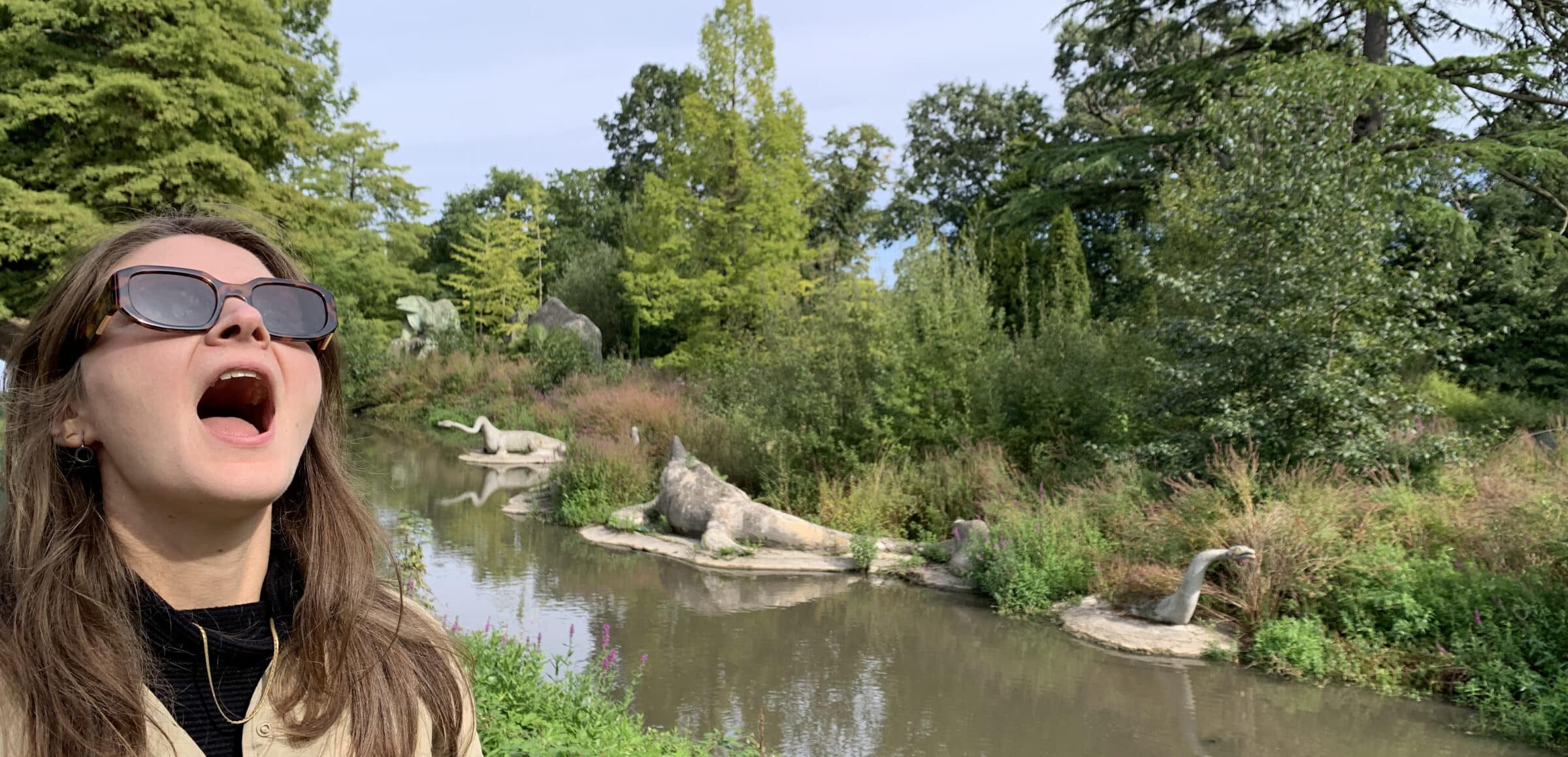
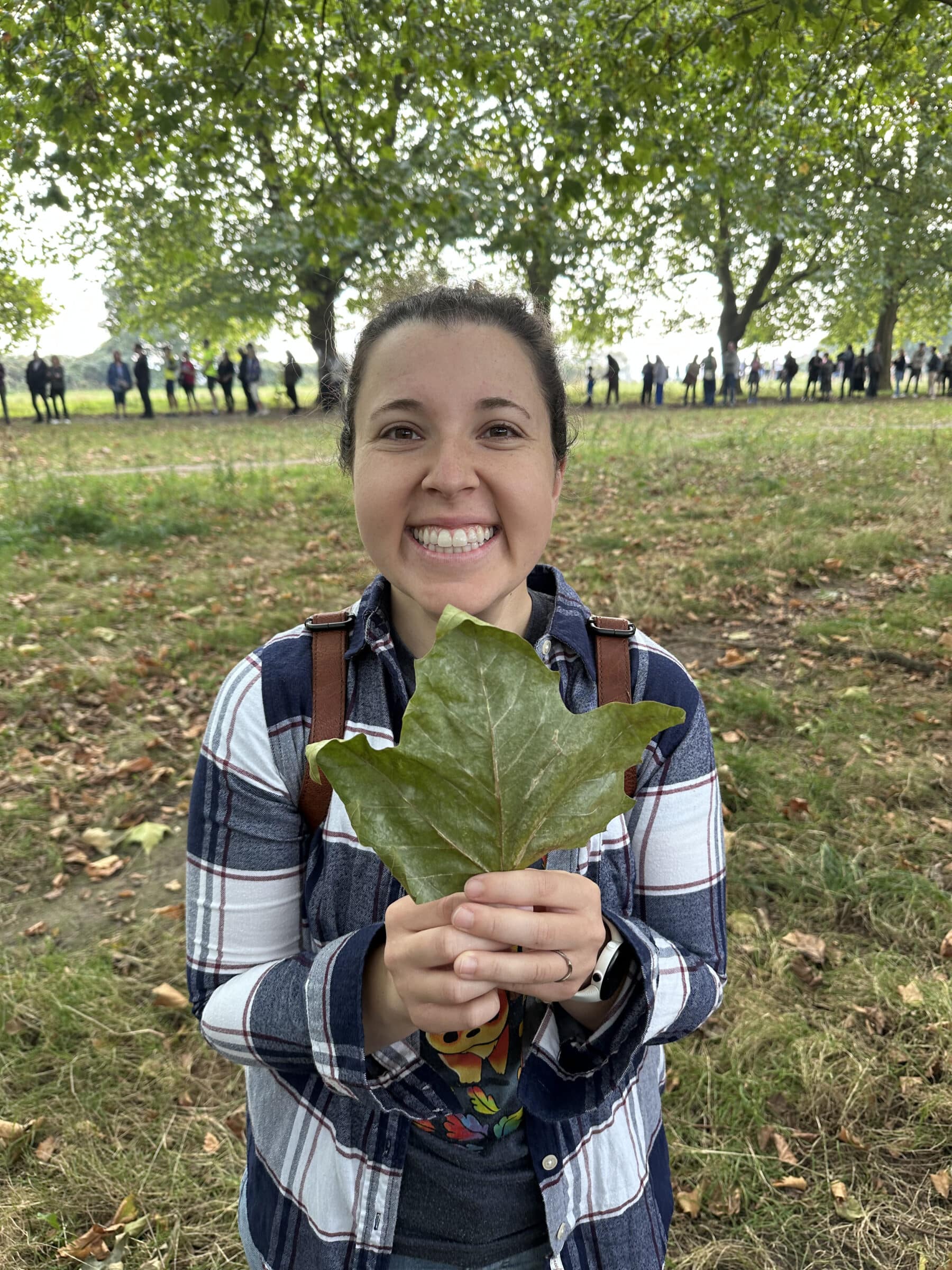
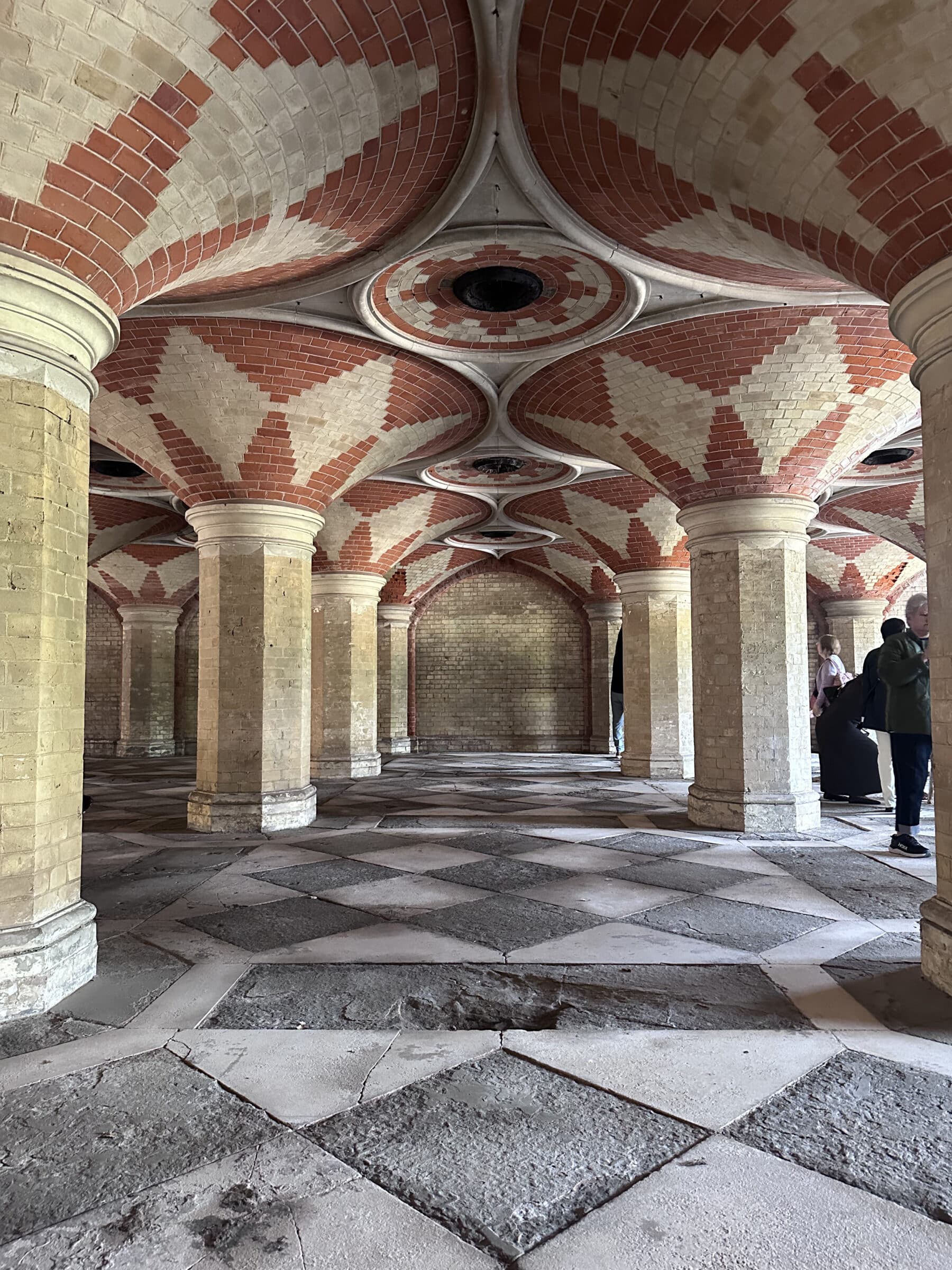
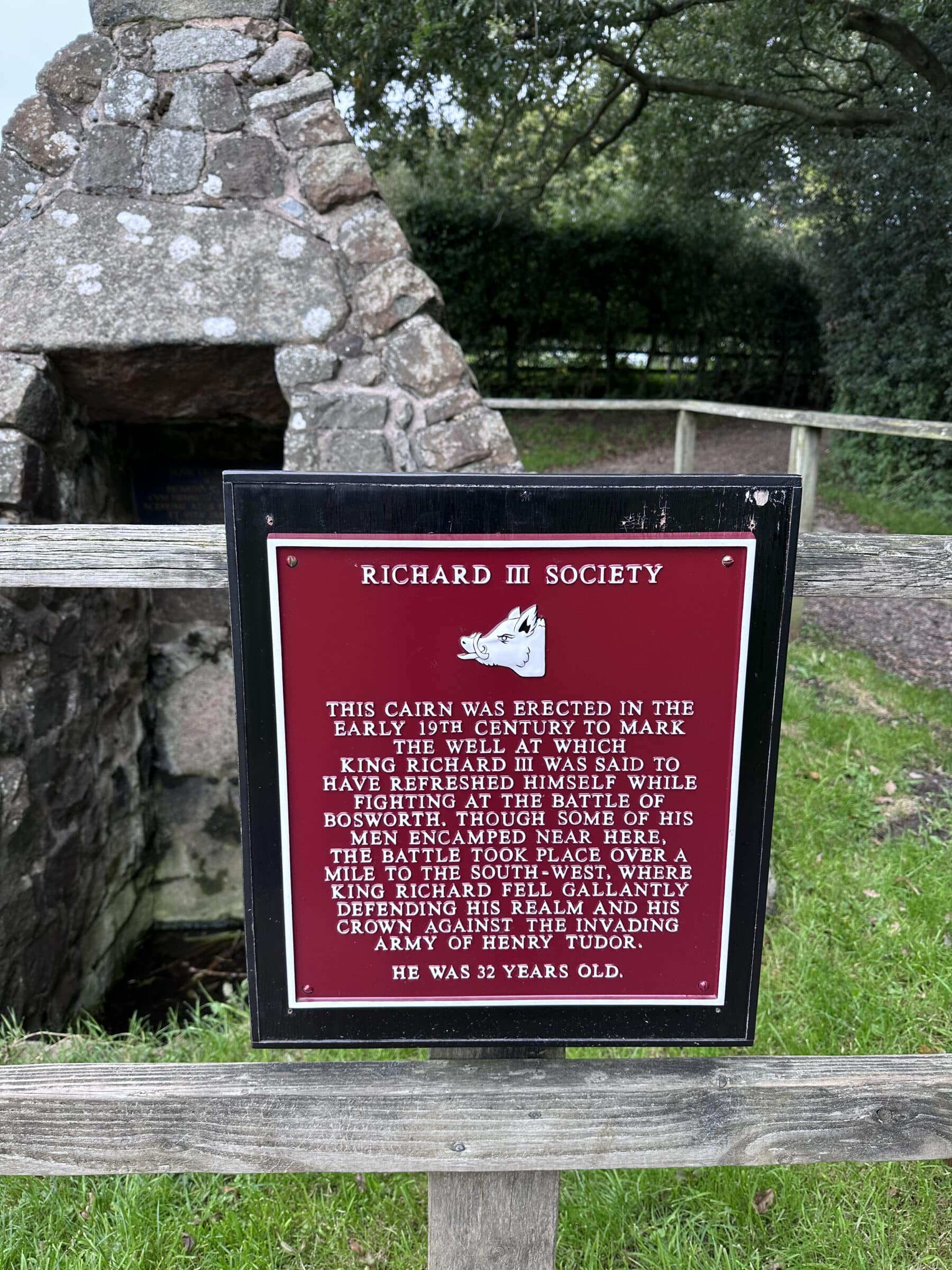
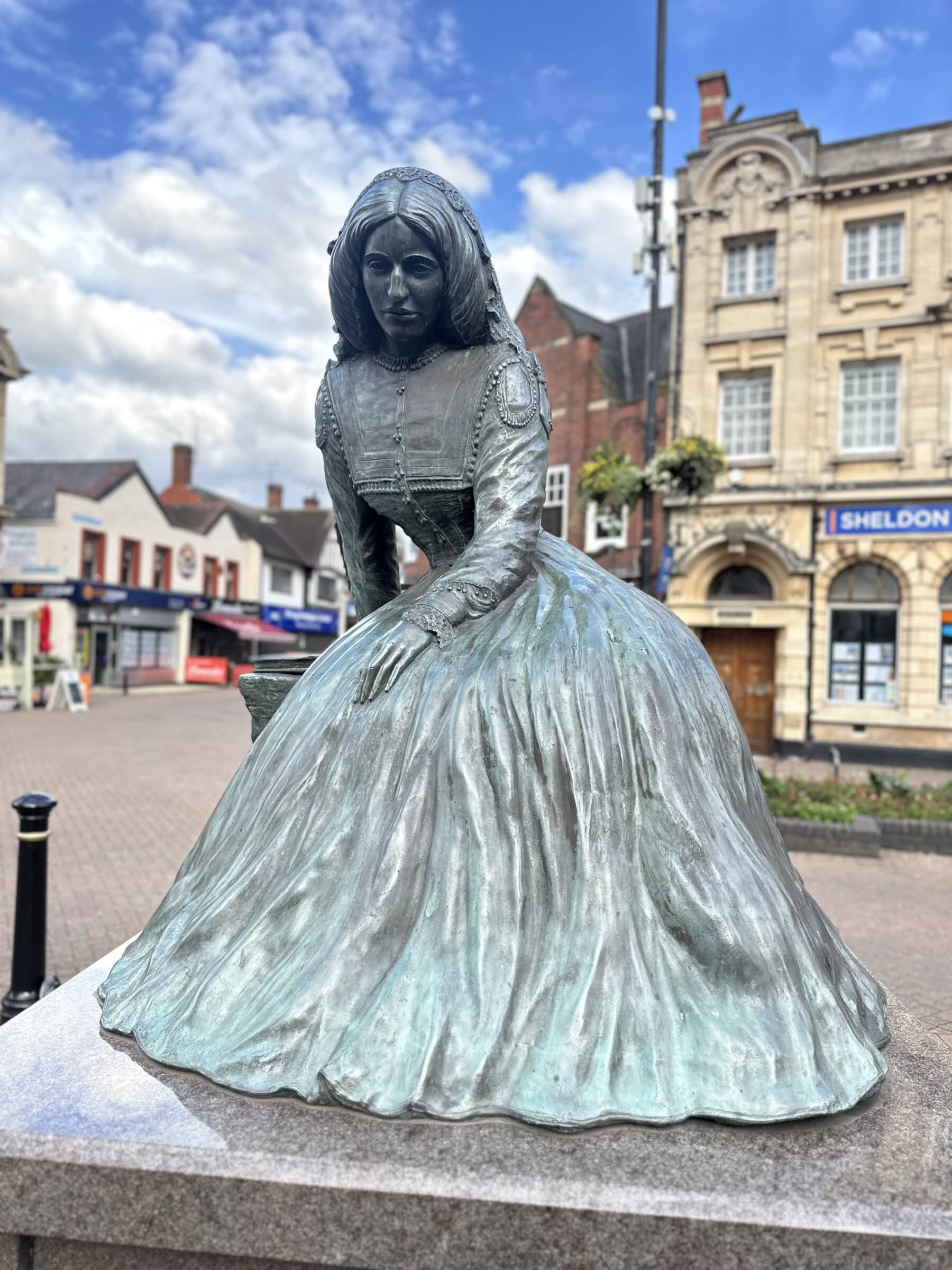





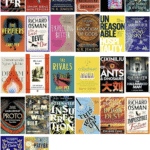

One Comment on :
Way down Londontown